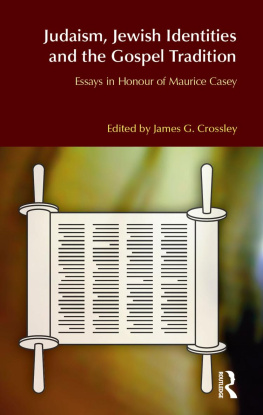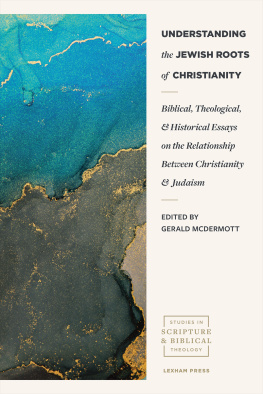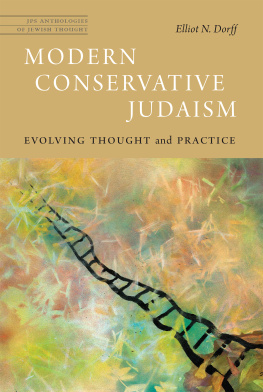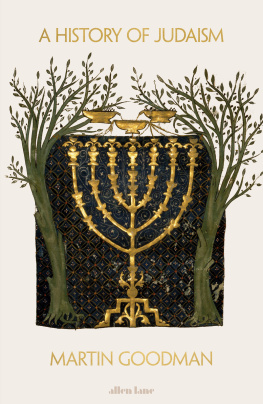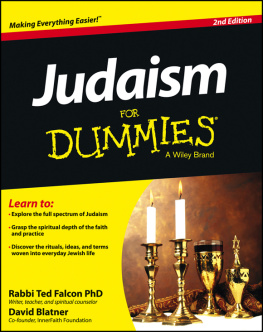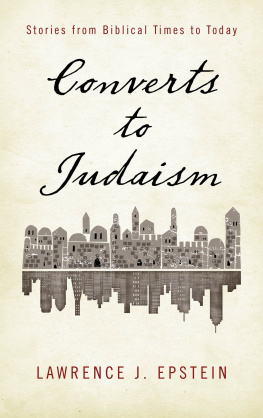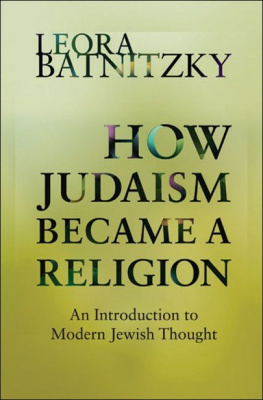JUDAISING MOVEMENTS
JUDAISING MOVEMENTS
Studies in the Margins of Judaism
Tudor Parfitt
and
Emanuela Trevisan Semi
First published 2002
by RoutledgeCurzon
Published 2013 by Routledge
2 Park Square, Milton Park, Abingdon, Oxon OX14 4RN
Simultaneously published in the USA and Canada
by Routledge
711 Third Avenue, New York, NY, 10017, USA
Routledge is an imprint of the Taylor & Francis Group, an informa business
2002 Tudor Parfitt and Emanuela Trevisan Semi
Typeset in Sabon by Mews Photosetting, Beckenham, Kent
All rights reserved. No part of this book may be reprinted or reproduced or utilised in any form or by any electronic, mechanical, or other means, now known or hereafter invented, including photocopying and recording, or in any information storage or retrieval system, without permission in writing from the publishers.
British Library Cataloguing in Publication Data
A catalogue record of this book is available from the British Library
Library of Congress Cataloguing in Publication Data
A catalogue record for this book has been requested
ISBN 13: 978-0-700-71515-2 (hbk)
CONTENTS
A Judaising Discourse in the Far East
An African Judaising Tribe
The Lost Tribes Committees at the Birth of the Jewish State
Jewish Universalism, Conversion and Gender in San Nicandro
A Judaising Movement in 20th-century USA
We are indebted individually to a number of people and organisations. Tudor Parfitt wishes particularly to thank Dr. Jack and Diane Zeller and Karen Primack in Washington D.C., Professor Norman Stillman of the University of Oklahoma, Professor Nathan Katz of the Florida International University, Professor Ivan Kalmar of the University of Toronto, Ms. Yulia Egorova, Dr. Xun Zhou, Professor Myer Samra, Mr. Lionel Okun, Mr. Neil Bradman, the Research Committee of SOAS and the British Academy. Emanuela Trevisan-Semi would like to thank Professor Elisa Bianchi, Professor Elena Cassin-Vernant, Dr. Daniel Friedman, Professor Abraham Holtz, Professor Steve Kaplan, Dr. Maria Grazia Masetti-Rouaud, Dr. Monica Miniati, Dr. Ottavia Schmidt, Dr. Sigrid Sohn, Mrs. Daniela Yoel (librarian at the Hebrew University Library), Mrs. Simha Zaharur (librarian at the Sourasky Library, Tel Aviv University), Mr. Renato Spiegel (Central Archives for the History of the Jewish people, Hebrew University of Jerusalem) together with SOSTEJE (Society for the Study of Ethiopian Jewry) friends, the Venice Seminar in Jewish History and especially Professor Giovanni Levi. We would both like to thank Professor Julien Klener, Dr. Shalva Weil, Professor Michela Gribinski and Dr. Michel Gribinski.
TVP
ETS
There has always been a tension within Judaism between the conflicting aspirations towards universalism on the one hand and particularism on the other. Notwithstanding that there is considerable support for the universalist version of Judaism in rabbinic literature, by and large, in post-exilic times Judaism has defined itself and Jews have defined themselves in a particularistic way. In modern times, Reform Judaism has somewhat broken with this long tradition, but not to the point where it sees itself as an unambiguously proselytising faith like Christianity or Islam. That Judaism should none the less attract adherents from outside the faith should occasion little surprise. There was always a tiny trickle of Christian converts to Judaism despite the draconian consequences for apostasy in Christendom. In modern times this trickle has turned into a steady stream.
Over the last 60 or 70 years, there have been a number of expressions of the universalist tendency among Jews. This phenomenon has not been much studied but it forms none the less an integral part of the history of Judaism in the 20th century. It has included a number of major figures, influenced peoples throughout the world and is still today an active force. A number of whole group conversions have taken place and various other forms of self-identification have created an international network of apparently Jewish groups which together constitute a new sort of Judaism. In recent years, new forms of communication have done much to bring these groups closer together and in some cases closer to mainstream Judaism. One of the most vigorous of contemporary organisations working with marginal Jewish groups throughout the world is the American-based Kulanu. Its president Dr Jack Zeller has noted: Never before in Jewish history has it been easier to meet remote and virtually ignored or newly developing Jewish communities. We can do it by phone, fax, e-mail .
The relationship between Christian missionaries and Jewish missionaries is complex and symbiotic. Time and time again we see the genesis of Judaising movements in the activity of Christian missionaries. One can see the clear hand of missionaries in the metamorphosis of the religions of the Falashas of Ethiopia or the Bene Israel of Bombay into Judaism and in a range of groups mentioned throughout this volume. Judaism has also been used as a trope by various groups throughout the world as a means of explaining themselves: the former in an attempt to use the familiar to explain the unknown, the latter in an attempt to use the exotic to reinvent themselves, sometimes in deliberate opposition to authentic Judaism, sometimes in sympathetic imitation of it.
Sometimes groups are attracted to ideologies because of specific innate characteristics of that ideology. In the case of Judaism we can see that, at certain periods and in certain cases, it is the Jewish tradition of exclusivity which exerts a certain fascination. Sometimes the rooted, documented historicity of Judaism acts as a powerful magnet to individuals and groups whose own historical identity is shaky. Sometimes the historical experience and suffering of the Jewish people seem to offer a usable paradigm to explain and render more bearable the suffering of one group at the hands of another: Black Africa in present times contains a growing number of groups inspired by such symbolic uses of Judaism. We deal here with the question of the Lemba a Southern African group whose identification with Jewry has evolved over the last hundred years but which has grown more intense over the last year or so as a result However we know of other Judaising groups in Uganda, Kenya, Somalia, Zambia, Zaire, Nigeria, South Africa and elsewhere. A great deal of work needs to be done to fully understand these developments, which may have great significance both for religious developments in Judaism and for the religious history of Africa and the United States.
One of the mechanisms whereby a use of Judaism has come to the fore and particularly in Africa and the United States has been through a discourse substantially generated by discussions about the Falashas, the so-called Jews of Ethiopia. Since the beginning of this century at least, the Jewishness of the Falashas has served as a means of helping Africans and African Americans to a new understanding of themselves. At the same time, the implied universalism in such a construct has had the effect of stimulating a wider discourse in which the idea of a universalistic Judaism has been prominent. This discourse has both been used as a means of identifying others as Jews and as a means of self-identity.


